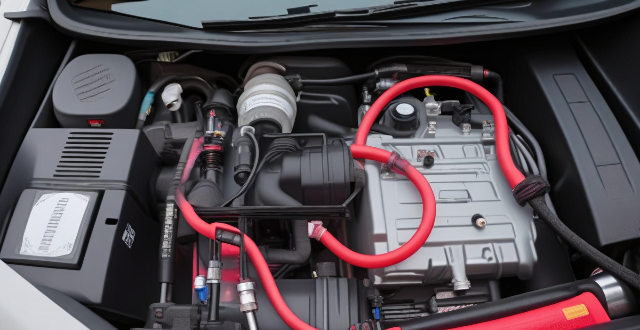Not changing your car's fuel filter regularly can lead to reduced engine performance, fuel system damage, and increased maintenance costs. It is essential to stay on top of this simple maintenance task to ensure optimal engine performance and prevent costly repairs.

Consequences of Not Changing Your Car's Fuel Filter Regularly
Overview
The fuel filter in your car plays a crucial role in maintaining the health and performance of your engine. It is responsible for filtering out contaminants and debris from the fuel before it reaches the engine. If you don't change your car's fuel filter regularly, it can lead to various problems that can affect the overall performance and longevity of your vehicle. In this article, we will discuss the consequences of not changing your car's fuel filter regularly.
Consequences
1. Reduced Engine Performance
- Poor Fuel Quality: When the fuel filter becomes clogged, it restricts the flow of fuel to the engine, resulting in poor fuel quality. This can cause the engine to run less efficiently and produce less power.
- Increased Emissions: A clogged fuel filter can also lead to increased emissions, as the engine may burn more fuel than necessary to compensate for the reduced flow.
- Rough Idling: A dirty or clogged fuel filter can cause the engine to idle roughly, which can be an indication of a problem with the fuel delivery system.
- Difficulty Starting: In severe cases, a completely blocked fuel filter can prevent the engine from starting altogether, as there is not enough fuel reaching the engine to initiate combustion.
2. Fuel System Damage
- Fuel Pump Stress: A clogged fuel filter puts additional strain on the fuel pump, as it has to work harder to push fuel through the restricted filter. Over time, this can lead to premature failure of the fuel pump.
- Injector Damage: Contaminants that bypass a clogged fuel filter can cause damage to fuel injectors, leading to costly repairs or replacements.
- Fuel Line Clogs: A dirty fuel filter can contribute to buildup in the fuel lines, which can eventually lead to clogs and further issues with fuel delivery.
3. Increased Maintenance Costs
- Costly Repairs: Neglecting to change the fuel filter regularly can result in expensive repairs down the line, as components such as the fuel pump and injectors may require replacement due to damage caused by contaminated fuel.
- Reduced Fuel Economy: A clogged fuel filter can negatively impact your car's fuel economy, causing you to spend more money on gas over time.
- Shortened Engine Lifespan: The overall health and longevity of your engine can be compromised if it is consistently running on subpar fuel quality due to a neglected fuel filter.
Conclusion
Regularly changing your car's fuel filter is essential for maintaining optimal engine performance and preventing costly repairs. By staying on top of this simple maintenance task, you can ensure that your vehicle runs smoothly and efficiently for many miles to come.